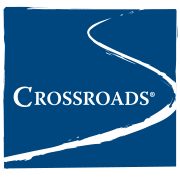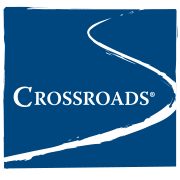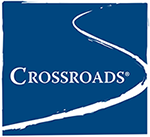Facing Change - Lewiston
Drug Rehab Center in Lewiston, Maine
- Mental Health
- Dual Diagnosis
Facing Change - Lewiston is a rehab and addiction treatment facility that offers individual and group counseling, relapse prevention plans, and vocational/educational opportunities.
Multiple patients have reported Facing Change - Lewiston as permanently closed.
Research other rehabs in Lewiston, Maine, or get help finding an open facility.
Our experts will find you an alternative facility.
(888) 674-0062 24/7 Free, Confidential, Expert HotlineAbout Facing Change - Lewiston in Maine
Facing Change - Lewiston is a rehabilitation and addiction treatment facility located in Lewiston, Maine. They offer a wide variety of services to help individuals recover from substance abuse and other addictions. Their approach to treatment is based on the 12-step philosophy of recovery, and they are committed to providing quality, compassionate care to each of their patients. Facing Change - Lewiston is staffed by experienced, caring professionals who are dedicated to providing the highest level of care to their clients.
Facing Change - Lewiston offers a comprehensive addiction treatment program that focuses on both individual and group counseling. Their program works to improve self-insight, motivate behavior change, promote psychological wellness and health, and teach life skills that will help individuals stay sober. Additionally, Facing Change - Lewiston offers a variety of support groups for individuals, family members, and friends, as well as individualized relapse prevention plans.
Facing Change - Lewiston is accredited by the Commission on Accreditation of Rehabilitation Facilities (CARF). They are also a licensed alcohol and drug treatment provider with the state of Maine, and are proud recipients of the National Council for Behavioral Health’s Excellence in Addiction Treatment Award. Facing Change - Lewiston also offers vocational and educational opportunities to their clients, as well as daily recreational activities to help build positive habits while in recovery.
Genders
Ages
Modality
Additional
Conditions and Issues Treated
Levels of Care Offered
This center offers a variety of custom treatment tailored to individual recovery. Currently available are Dual-Diagnosis, Outpatient, with additional therapies available as listed below.
“Outpatient treatment is ideal for those who have a lower intensity addiction. It’s also suitable for those with a supportive environment and those on a tight budget.
Outpatient treatment can be considered the lowest intensity level of addiction treatment. It is ideal for early phase addiction or lower intensity addictions. It may involve weekly sessions instead of daily. Peer group support, 12-step programs, and individual counseling may still be used and anti-addiction medication.
Therapies & Programs
No single treatment works for all addicts; therefore, the goal of treatment and therapy should be to find what works best for each individual. Some people requiring addiction treatment may only need a few weeks of inpatient care. Others will require long-term residential care. Tolerance and withdrawal levels vary from person to person and thus affect the intensity of the treatment needed.
If an individualized approach to treatment and therapy is not offered, addicts may fail to reap benefits from their efforts. Professionals must customize plans according to their patient’s needs, limitations, and strengths. The goal of all forms of addiction treatment should be for addicts to find healthy ways to cope with their addiction and its underlying causes.
Couples therapy for drug addiction is a unique form of therapy that allows family members to work through the emotional issues of their loved one’s addiction together. Family members can support each other while learning how to cope with the addiction and encourage healthy changes.
Accordingly, couples therapy for drug addiction is designed for an addict and their significant other or spouse. The two will work with a therapist to learn how the addiction affects themselves and the relationship and how to break the negative patterns of behavior that may have developed.
Drug addiction can destroy a person’s life, as well as their family and friends. The loss of one’s ability to choose how to live and behave often leads the addict into depression, anger, guilt, and many emotional problems.
The therapies usually include siblings, children, and parents who are involved in their daily lives. These sessions are vital because they address past issues that may have hampered an addict’s or alcoholic’s recovery and provide support at a crucial time!
One of the most critical aspects of family therapy is helping addicts’ loved ones see their situation in a new light. It’s also one of the most challenging things a family can do when a loved one struggles with addiction or alcoholism.
Group therapy is held in a safe, controlled setting where patients can feel comfortable sharing their struggles and gaining perspective through shared conversations. It takes place in a group rather than one on one to prevent feelings of isolation or being unique in their situation while creating an environment for addicts at Facing Change - Lewiston to develop fellowship, accountability, and support. Group therapy is an important tool in recovery that prevents cravings that prompt a return to active addiction.
This type of therapy involves the use of a variety of therapeutic techniques to help addicts recover from past traumas that might have triggered their substance abuse. During these sessions, therapists will work with the addict to address painful memories and learn how to cope effectively with stressors as they arise.
During these types of sessions, therapists will typically focus on three main goals:
- Identifying and expressing painful emotions associated with past traumas.
- Reducing the effects of stress on an addict’s life by developing more effective coping mechanisms.
- Developing healthy ways of thinking about stressful situations that can help addicts avoid substance abuse issues in the future.
This type of therapy is typically used in conjunction with other types of addiction treatment services. By identifying and dealing with the root cause of addiction, most addicts can overcome their cravings and prevent relapse once they leave rehab.
Many different types of addiction treatment services exist to help addicts safely get sober, but it’s important for recovering individuals to find a therapist or support group that will help them address the root cause of their addiction.
Dialectical Behavior Therapy is a form of Cognitive Behavioral Therapy that helps patients understand the relationship between their thoughts, feelings, and behaviors. It is beneficial for those whose addictions and behaviors stem from severe mental health issues. It aims to help the patient achieve their goals and identify how they can enhance their lives.
Cognitive-behavioral therapy is a talking-based method that helps people struggling with addiction replace destructive behaviors with healthier ones. CBT also helps them identify the underlying thoughts and beliefs that cause these behaviors in the first place and ways to control those thoughts and feelings. It can be administered as a holistic therapy or as part of combination therapy and—as opposed to turning to drugs and alcohol—helps addicts learn how to respond to negative thoughts instead.
Payment Options Accepted
For specific insurance or payment methods please contact us.
Is your insurance accepted?
Ask an expert, call (888) 674-0062
Additional Details
Specifics, location, and helpful extra information.
Lewiston, Maine 4240 Phone Number(207) 784-0922 Meta DetailsUpdated November 25, 2023
Staff Verified
Facing Change - Lewiston Patient Reviews
There are no reviews yet. Be the first one to write one.
Lewiston, Maine Addiction Information
Prescription opioid abuse is the most common form of substance abuse in Maine. More than 10% of these residents have also admitted to using prescription drugs for non-medical purposes. Between 2013 and 2014, 4 out of every 5 deaths in Maine were caused by illicit drugs. One in five high school students in Maine uses marijuana every single month.
9% of people in Lewiston, ME, abuse drugs. While heroin and fentanyl are the most commonly cited drugs involved in these overdoses, prescription painkillers are also problematic. From 2012 to 2016, there was an average of 1,521 drug overdose deaths each year. There are many different types of drug treatment available in Lewiston, Maine. Some popular options include outpatient therapy, 12-step programs, and residential rehab.
Treatment in Nearby Cities
- Newport, ME (68.7 mi.)
- Orrington, ME (82.6 mi.)
- Portland, ME (30.5 mi.)
- Limestone, ME (226.2 mi.)
- Winterport, ME (77.4 mi.)
Centers near Facing Change - Lewiston




The facility name, logo and brand are the property and registered trademarks of Facing Change - Lewiston, and are being used for identification and informational purposes only. Use of these names, logos and brands shall not imply endorsement. RehabNow.org is not affiliated with or sponsored by Facing Change - Lewiston.

